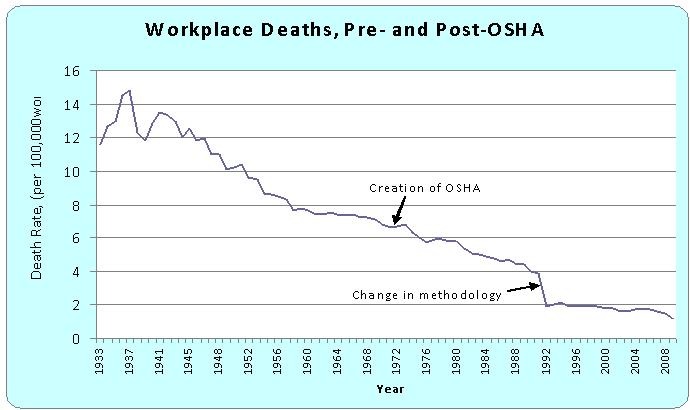Markets are communities which humanize us - Politicians frequently slow or stop this process9/12/2016 "We didn’t humanize capitalism, it humanized us. The wealth produced by capitalism allowed us to indulge our humanitarianism in ways not possible when so many were living on the edge of survival. You can’t have 8-hour workdays, 40-hour work weeks, and no child labor, until the material conditions exist to make such changes feasible for a large number of people. Workers didn’t work long hours, and kids didn’t work at young ages, because employers held a gun to their head. And they didn’t do it because they loved to work hard, long, uncomfortable hours. They, like us, would have preferred shorter hours, better wages, and better working conditions. However, when capital is scarce, wages will be low and feeding one’s family will require more hours and more hands on deck." The fallacy is that the agricultural life which preceded this industrialization was a bucolic Utopia, as opposed to the truth that it was hardship, and privation, a hardscrabble life. This is the same analytical problem we see when progressives discuss the noble savage. This is nothing but a debased fantasy. "At the start of the nineteenth century, children were likely to be employed either working the family farm or in the early factories. In both cases, the household required the child’s contribution to its income generation in order to get by. Historian of childhood Steven Mintz notes that wages of children between the ages of ten and 15 “often amounted to 20 percent of a family’s income and spelled the difference between economic well-being and destitution.” As Mintz also points out, “key decisions…were based on family needs rather than individual choice…[in] the cooperative family economy.” Surely if parents of that era could have survived without their children working, they would have, as is demonstrated by the relative absence of child labor among the very wealthy of the time. But most parents simply could not afford to do so." This wealth factor applies not just to child labor, or labor more generally but to nearly all aspects of society, and culture. As a nation becomes wealthy, the desires of the individuals change. These desires are powerful, and unrelenting. The result is that where republican governance, and individual liberty allow, the wealthier masses desire a cleaner, more secure home, then a cleaner, and more secure environment, among myriad other things. The result is better housing, then better air, water, and serious reduction in pollution of all stripe. This process is endless provided government does not sufficiently interfere with the process to derail it. The quote below is one of the most important, I cannot say this more strongly. "Evidence for the role of wealth rather than legislation comes from Clark Nardinelli, who shows declining child labor rates in the British cotton and flax factories for two decades before the first Factory Act in 1833, as well as ongoing declines in child labor in the silk factories up until 1890 even though most of the child labor laws did not apply to the silk industry." No social change pursued by government is timely. The problem being addressed has been long solved, politicians are simply "piling on" in an attempt to scrape glory from the actual solution to the problem. The Factory Act of 1833 shows this since the problem was being handily reduced before the Act was introduced. The same happened with workplace injuries/fatalities in the US, which peaked in the early 1930s but only came to the mind of the politicians in 1970 when the OSHA law was passed. https://danieljmitchell.files.wordpress.com/2012/09/work-deaths-pre-and-post-osha.jpg Notice how there is no immediate additional deflection in the trend line, and the later minor deflection immediately returns approximately to the prior trend. However, prior to the introduction of OSHA the trend was a long term dramatic lowering of the trend line, and the trend following was for the long term trend to continue. If one places a straight edge over the the period 1964 -1988 it shows no deflection. What were the results of OSHA? Few other than a birds nest of regulations.
OSHA, and the Factory Act of 1833 helped politicians feel better about themselves, but did little to actually help the people they desired to help. There is nothing wrong with politicians wishing to help, there is plenty wrong when they do so by creating a thicket of regulations which slow the increase of GDP/wealth. By doing so they are simply slowing the actual process through which positive social/workplace change occurs, delaying progress, and delaying the humanization effect of the markets. Or putting it another way, the politicians are a dehumanizing effect, a sea anchor in effect slowing the market's headlong rush to humanize us.
Comments
|
AuthorMaddog Categories
All
|

 RSS Feed
RSS Feed